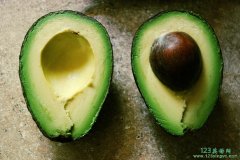It’s generally believed that people act the way they do because of their personalities and attitudes. They recycle their garbage because they care about the environment. They pay S5 for a caramel brul6e latte because they like expensive coffee drinks.
It’s undeniable that behavior comes from our inner dispositions (性情),but in many instances we also draw inferences about who we are, as suggested by the social psychologist Daryl Bern, by observing our own behavior. We can be strangers to ourselves. If we knew our own minds,why would we need to guess what our preferences are from our behavior? If our minds were an open book, we would know exactly how much we care about the environment or like lattes. Actually,we often need to look to our behavior to figure out who we are.
Moreover, we don’t just use our behavior to learn about our particular types of character~we infer characters that weren’t there before. Our behavior is often shaped by little pressures around us, which we fail to recognize. Maybe we recycle because our wives and neighbors would disapprove if we didn't. Maybe we buy lattes in order to impress the people around us. We should not mistakenly believe that we always behave as a result of some inner disposition.
Whatever pressures there can be or inferences one can make, people become what they do, though it may not be in compliance (符合)with their true desires. Therefore, we should all bear in mind Kurt Vonnegufs advice: “We are what we pretend to be, so we must be careful about what we pretend to be. ’’
52.According to the passage, personalities and attitudes are commonly believed to __________.
A.determine one’s behavior
B.reflect one’s taste
C.influence one’s surroundings
D.result from one’s habits
53.Which of the following would Daryl Bern most probably agree with?
A.The return of a wallet can indicate one’s honesty.
B.A kind person will offer his seat to the old.
C.One recycles plastics to protect the environment.
D.One buys latte out of true love of coffee.
54.What can be inferred from the underlined sentence in the passage?
A.We fail to realize our inner dispositions.
B.We can be influenced by outside pressures.
C.Our behavior is the result of our true desires.
D.Our characters can shape our social relationships.
55. What does the author mainly discuss in the passage?
A.Personalities and attitudes.
B.Preferences and habits.
C.Behavior and personalities.
D.Attitudes and preferences.
【考点】考察科普知识类阅读
【文章大意】很多人都认为人的性格决定了人的行为。作者在本文中提出了另外一个理论,很多情况下人们的行为收到了外界压力的影响,并不一定能够反映我们的真正的性格。
52.A 推理题。根据文章第一段1,2行It is generally believed that people act the way they do because of their personalities and attitudes。可知人们都认为他们做事情是因为他们的性格让他们这样做了。也就是说他们认为他们的性格决定了他们的行动。故A正确。
53.A 推理题。根据文章第二段第一句:It’s undeniable that behavior comes from our inner dispositions….可知作者认为:无法否认我们的行为来自我们内心的性情。这句话说明我们的行为可以说明我们的性格。A项:归还钱包的做法可以说明人们很善良。故A正确。
54.B 推理题。根据下划线前面一句:Our behavior is often shaped by little pressure around us, which we failed to recognize。可知我们的行为经常受到我们周围的压力的影响,这一点我们很少意识到。接着就列举下划线的例子,说明该例子表示的正是我们容易受到外界压力的影响,做出一个与内心性格不一样的事情。故B正确。
【长难句解析】
1.It’s generally believed that people act the way they do because of their personalities and attitudes.
【翻译】人们通常都认为人们是因为他们的个性和态度而决定他们做事的方式。
【解析】本句中的the way表示….的方式;后面的从句有多种连接方法,如:the way that/in which/不填….;另外本句中的it是形式主语,真正的主语是that引导的主语从句。
2.Whatever pressures there can be or inferences one can make, people become what they do, though it may not be in compliance with their true desires.
【翻译】无论可能有什么样的压力或者做出什么样的推论, 人们总是成为他们想成为的那个样子,尽管这也许和他们真正的想法是不一致的。
【解析】本句中的Whatever pressures there can be or inferences one can make是一个让步状语从句,同时也是一个形式倒装。“特殊疑问词+ever”既可以引导让步状语从句,也可以引导名词性从句;而“no matter+特殊疑问词”只能引导让步状语从句。
你会喜欢下面的文章?



